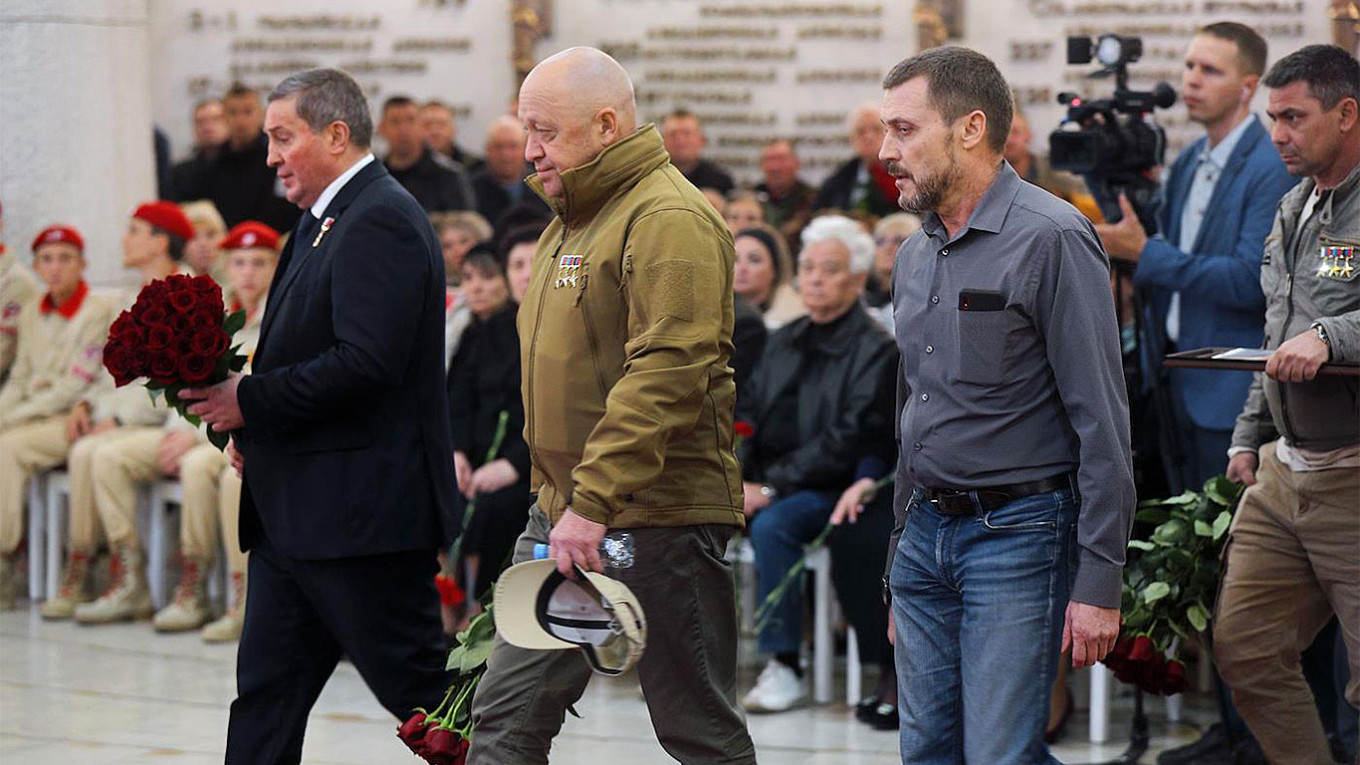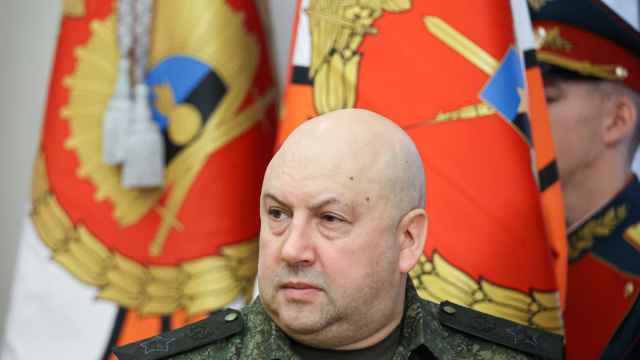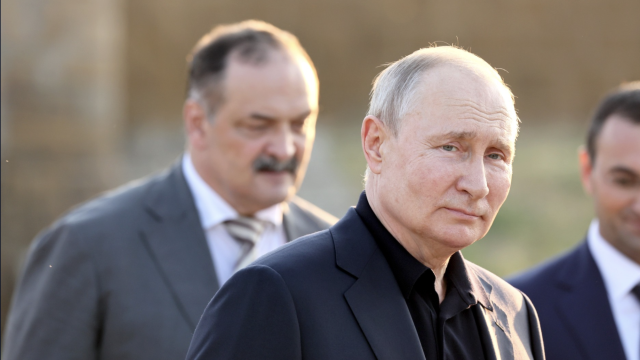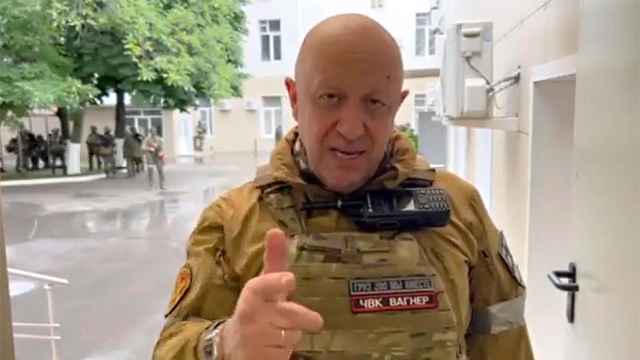Yevgeny Prigozhin, a Kremlin-linked Russian businessman, has for the first time admitted that he is the founder and financier of the notorious private military contractor Wagner.
“I did it myself,” Prigozhin said Monday after long denying any associations with the mercenary group.
In an uncharacteristically candid statement on his company’s social media page, Prigozhin said he formed the mercenary unit on May 1, 2014.
Around that time, Russia annexed Crimea from Ukraine and an armed conflict broke out between Kremlin-backed separatists and government forces in Ukraine's east.
Prigozhin characterized the hostilities as a “genocide of the Russian population” — a justification President Vladimir Putin used eight years later to launch the full-scale invasion of Ukraine. Prigozhin has since been filmed recruiting Russian prisoners to stanch the Armed Forces’ growing manpower shortages.
Prigozhin, who is commonly known as “Putin’s chef” for his catering contracts with the Kremlin, disclosed Wagner’s role in the June 2014 takeover of an international airport in the eastern Ukrainian city of Luhansk. Ukraine accused Wagner of shooting down its transport aircraft carrying 49 Ukrainian Air Force troops and pilots that month.
“Their courage and bravery made it possible to liberate Luhansk airport and many other territories,” he wrote, adding that Wagner had “radically changed the fate” of the two breakaway republics, Luhansk and Donetsk.
Numerous media investigations have in recent years implicated Wagner mercenaries of rape, torture and executions in hotspots around the world, including Syria, Libya, Mali and the Central African Republic.
Prigozhin referred to his troops as “heroes who defended the Syrian people, the other peoples of Arab countries, disadvantaged Africans and Latin Americans.”
When asked in a media inquiry why he had distanced himself from Wagner until now, the businessman said:
“I’ve been dodging the blows of a lot of opponents for a long time with one goal in mind: Not to frame these guys, the backbone of Russian patriotism.”
It was not immediately clear what compelled Prigozhin to open up as Russia’s protracted war in Ukraine hit its seven-month mark.
In recent years, he has pursued lawsuits against journalists and others who have publicly linked him to Wagner.
Wagner is under U.S. sanctions over the conflict in Ukraine and Russian interference in the 2016 presidential election. The European Union sanctioned the mercenary group in December 2021 over atrocities committed in Ukraine, the Middle East and North and Central Africa.
Although private military companies are illegal under Russian law, Prigozhin is widely believed to be allowed to run Wagner freely because it is allegedly used by the Kremlin to pursue its foreign policy goals without using its own soldiers.
Prigozhin’s disclosure comes just days after a video leaked from inside a Russian prison yard showing a man closely resembling him recruiting inmates to join Wagner in Ukraine.
A Message from The Moscow Times:
Dear readers,
We are facing unprecedented challenges. Russia's Prosecutor General's Office has designated The Moscow Times as an "undesirable" organization, criminalizing our work and putting our staff at risk of prosecution. This follows our earlier unjust labeling as a "foreign agent."
These actions are direct attempts to silence independent journalism in Russia. The authorities claim our work "discredits the decisions of the Russian leadership." We see things differently: we strive to provide accurate, unbiased reporting on Russia.
We, the journalists of The Moscow Times, refuse to be silenced. But to continue our work, we need your help.
Your support, no matter how small, makes a world of difference. If you can, please support us monthly starting from just $2. It's quick to set up, and every contribution makes a significant impact.
By supporting The Moscow Times, you're defending open, independent journalism in the face of repression. Thank you for standing with us.
Remind me later.






